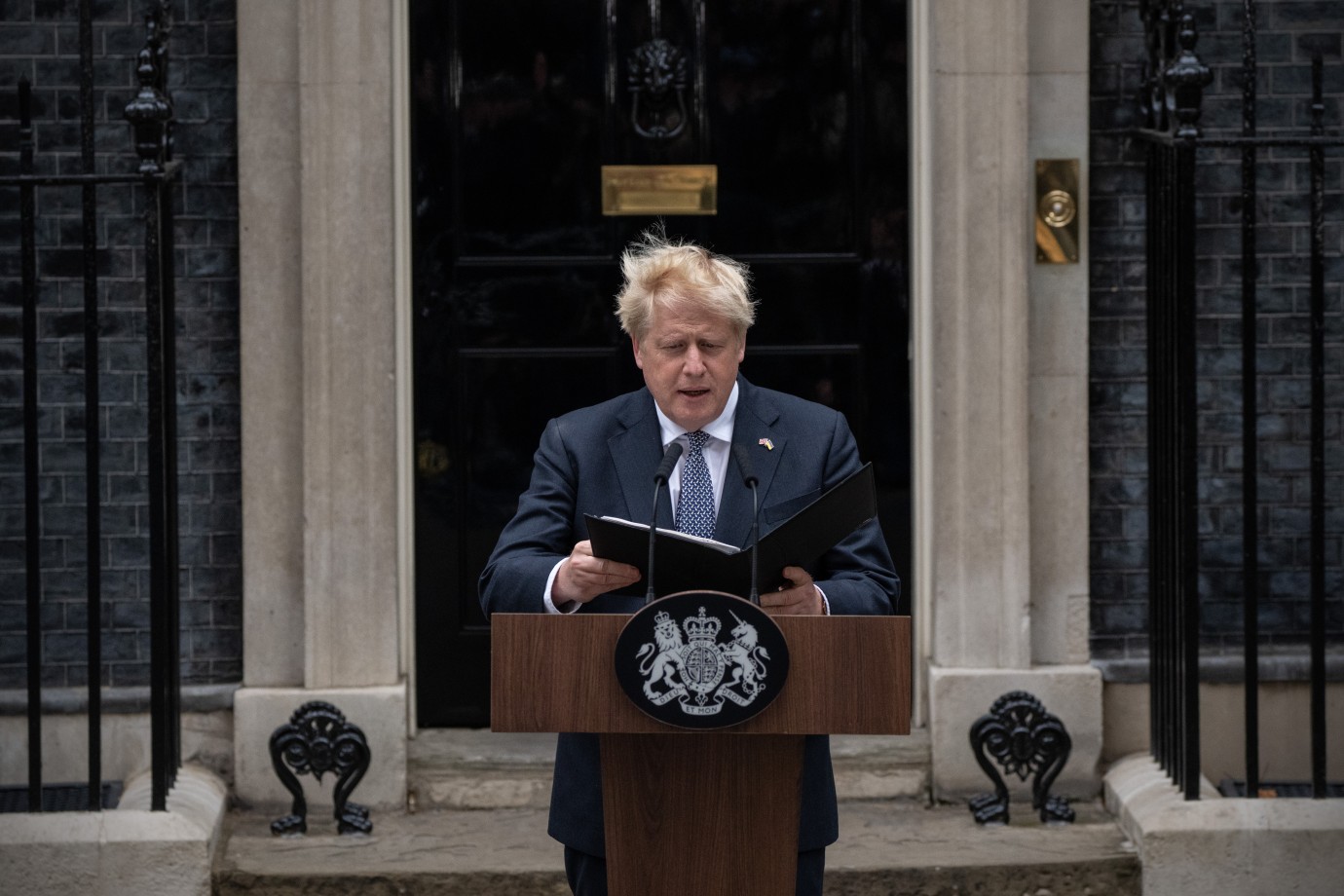The global political landscape was shaken up on Thursday when Prime Minister Boris Johnson resigned from his position of leader of the United Kingdom. Johnson said that he plans to stay in office until his party picks a new leader, however, it is not clear how long that process will take.
Johnson made the announcement while speaking outside of 10 Downing Street. The decision to step down comes after a revolt within Johnson’s Conservative Party. In his address, Johnson said that the will of the parliamentary party has spoken and that there should be a new leader in place.
Although Johnson did not give any specifics of the process of picking a new leader, he said that the timeline should begin now. The embattled leader said that a timeline to choose his successor will be announced next week. The historic announcement puts the government of the United Kingdom in unchartered territory with the Conservative Party deeply divided over the decision of Johnson to step down.
Why the Decision to Step Down?
Johnson has been under a cloud of controversy over the last few months. Even some of his most ardent supporters have left his side after a number of scandals swirled over his time in office. This includes the controversial handling of the Brexit decision as well as Johnson’s response to the COVID-19 pandemic.
Just last month, Johnson barely survived a confidence vote within his own party. A whopping 41% of his own party in Parliament did not support him staying in office, sending the signal that a revolt was on the horizon.
All of this controversy came to a head this week. Almost 60 members of his government resigned since Tuesday alone, making a bold statement about their confidence in Johnson’s ability to lead the country. This includes the resignation of five key Cabinet members.
Grabbing headlines over the past few days was how Johnson handled the resignation of his former deputy chief whip, Chris Pincher. The whip had been accused of groping two men last week, leading to his resignation.
As the tension began to build throughout Parliament, Johnson initially tried to stay in control even as a historic number of ministers left the sinking ship. Johnson announced as recently as Wednesday that he was not going to resign. However, he finally gave up the fight on Thursday after a handful of his most loyal allies advised him to resign.
What is Next?
All of the United Kingdom will be anxiously waiting for details about the timeline to appoint a new prime minister. Although Johnson was adamant that it should be a swift process, some political experts caution that it could be October before a leader is appointed Prime Minister. This is when the party is scheduled to gather for its annual conference.
It has been a typical practice for a prime minister to allow plenty of time for the party to find a new leader after resigning. However, some political leaders in the country are urging Johnson to act quickly to get out of office and put this chapter behind everyone.
Labour leader Keir Starmer issued a statement Thursday saying that his party would call for a confidence vote throughout the entire House of Commons if the opposition Conservative party did not force Johnson to leave office immediately. Should the Labour Party win this vote, it could potentially trigger a general election. However, experts caution that the Labour Party would not necessarily push a general election during the same time period as the impending leadership election. This means that it is unlikely that the opposing Labour Party will have much of a hand in selecting the new Prime Minister.
Potential Replacements for Johnson
The big question on the minds of everyone now is who will be the appointed leader going forward. Possible replacements include former Chancellor Rishi Sunak, former Health Secretary Sajid Javid, Defense Secretary Ben Wallace, Foreign Secretary Liz Truss, Chancellor Nadhim Zahawi, former Health Secretary Jeremy Hunt, and former Defense Secretary Penny Mordaunt.
The downfall of Johnson could not have been predicted a few years ago when he first took office. Johnson won his office in a landslide in December 2019, promising to usher the United Kingdom into a post-European Union world. However, the onset of the pandemic immediately threw his leadership into question.
Did you find this content useful? Feel free to bookmark or to post to your timeline for reference later!






